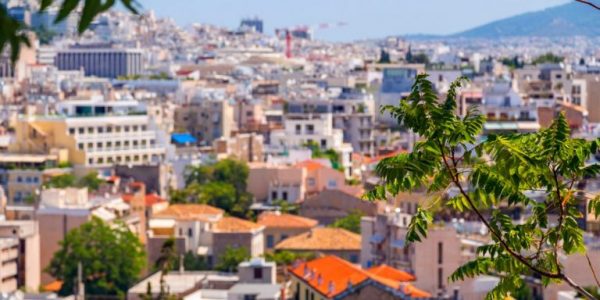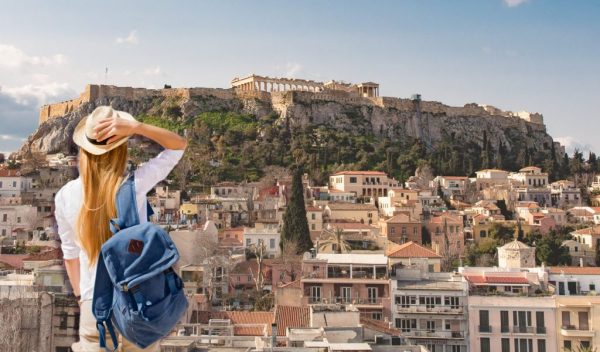
As we enter the second month of the new school year and given the high number of COVID-19 cases, many reasonable questions arise regarding the protection of our children against COVID-19. The Doctors of the Department of Clinical Therapeutics, of the School of Medicine, of the National and Kapodistrian University of Athens, Lina Paschou (Assistant Professor of Endocrinology), Theodora Psaltopoulou (Professor of Therapeutic-Preventive Medicine) and Thanos Dimopoulos (Professor of Clinical Therapeutics- Rheumatology-Oncology-Chancellor of the National and Kapodistrian University of Athens), and provide practical advice.
According to a recent CDC study in the US, the risk of spreading COVID-19 in schools, where the use of masks was not compulsory, was 3.5 times higher than when using a mask. Specifically, the study gathered data from 1,000 schools in the State of Arizona and found that there were 113 COVID-19 cases spreading to schools within a month, when not using a mask, while fewer and more isolated cases occurred in schools, where the use of masks was compulsory. Of course, protecting children at school is only one piece of the puzzle, as it is also important to follow safe practices at home or elsewhere, so as to reduce the risk of contagion. Another CDC study, also published recently, found that children had similar rates of infection compared to adults.
Pfizer and Moderna vaccines are currently approved for children over 12 years old by the FDA (USA) and EMA (Europe). Both are mRNA vaccines, i.e. they do not contain the virus or part of it but a set of information to train human cells to make a protein that will activate the immune system to produce protective antibodies. The Pfizer vaccine for children ages 5 to 11 is expected to be approved, possibly within the next month. For those children, who are not yet eligible for vaccination, the best protection we can give them is to make sure everyone around them is vaccinated. The use of a mask is also very important, while distances and possibly isolation in some cases may be needed during the following period.
Latest News

PM Meloni Meets Vice President Vance in Rome Signalling Optimism on Ukraine Talks
Meloni emphasized the strength and strategic value of the Italy-U.S. partnership.

Airbnb: Greece’s Short-Term Rentals Dip in March Amid Easter Shift
Data from analytics firm AirDNA shows that average occupancy for short-term rentals dropped to 45% in March, down from 49% the same month last year.

Easter Week in Greece: Holy Friday in Orthodoxy Today
At the Vespers service on Friday evening the image of Christ is removed from the Cross and wrapped in a white cloth

Meloni and Trump Meet in Washington, Vow to Strengthen Western Ties
“I am 100% sure there will be no problems reaching a deal on tariffs with the EU—none whatsoever,” Trump stressed.

ECB Cuts Interest Rates by 25 Basis Points in Expected Move
The ECB’s Governing Council opted to lower the deposit facility rate—the benchmark for signaling monetary policy direction—citing an updated assessment of inflation prospects, the dynamics of underlying inflation, and the strength of monetary policy transmission.

Current Account Deficit Fell by €573.2ml Feb. 2025: BoG
The improvement of Greece’s current account was mainly attributed to a more robust balance of goods and, to a lesser extent, an improved primary income account

Hellenic Food Authority Issues Food Safety Tips for Easter
Food safety tips on how to make sure your lamb has been properly inspected and your eggs stay fresh.

Greek Kiwifruit Exports Smash 200,000-Ton Mark, Setting New Record
According to data by the Association of Greek Fruit, Vegetable and Juice Exporters, Incofruit Hellas, between September 1, 2024, and April 17, 2025, kiwifruit exports increased by 14.2%.

Easter Tourism Boom: Greece Sees 18.3% Surge in Hotel Bookings
Among foreign markets, Israel has emerged as the biggest growth driver, with hotel bookings more than doubling—up 178.5% year-on-year.

Greece to Launch Fast-Track Tender for Offshore Hydrocarbon Exploration
Last week, Papastavrou signed the acceptance of interest for the two Cretan blocks, while similar decisions regarding the two Ionian Sea blocks were signed by his predecessor







![Πλημμύρες: Σημειώθηκαν σε επίπεδα ρεκόρ στην Ευρώπη το 2024 [γράφημα]](https://www.ot.gr/wp-content/uploads/2025/04/FLOOD_HUNGRY-90x90.jpg)





![Airbnb: Πτωτικά κινήθηκε η ζήτηση τον Μάρτιο – Τι δείχνουν τα στοιχεία [γράφημα]](https://www.ot.gr/wp-content/uploads/2024/07/airbnb-gba8e58468_1280-1-90x90.jpg)



























 Αριθμός Πιστοποίησης
Αριθμός Πιστοποίησης